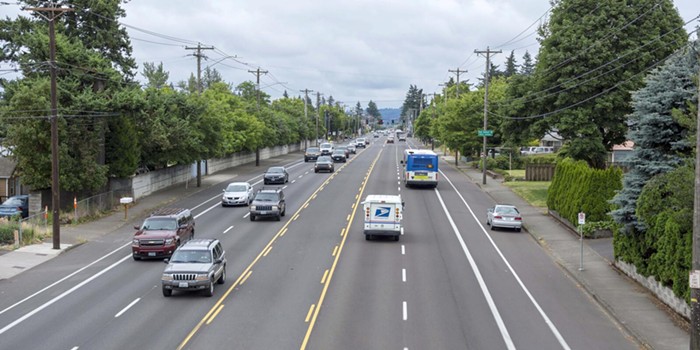PORTLAND CITY HALL—months after hacking its way through its most painful budget in decades—finally got a welcome dose of good financial news this month.
Thanks to tight spending controls enacted by Mayor Charlie Hales, with a helpful nudge from an improving economy, city commissioners are suddenly staring at a one-time surplus that could be worth anywhere from $8 million to $11 million.
That's a huge turnaround, after a budget that saw the city close a $21.5 million spending gap. And the news, first reported by the Mercury, has hungry bureaus and interest groups already licking their chops. But anyone looking for a bit of political balm might have to wait.
Hales, sources say, appears to be threading the needle on a grand bargain that will let him tout his commitment to fiscal restraint while also finding significant money for two oft-competing power players in city hall: the social services lobby and the business community.
Specifically, he's proposed an early retirement for two of the city's longtime debts. He wants to pay off the almost $4.6 million left on the 1996-1998 renovation of city hall and the roughly $3.5 million left on the city's new 911 computer-assisted dispatch system. By policy, it's the right thing to do with one-time money—the antithesis of seeding programs that would need to be propped up every year.
But here's the magic: It will still let the city spend millions restoring jobs and programs that were slashed this spring. Just not immediately.
By getting those debt payments off the books a few years early, the city would free up close to $3.4 million annually, starting next summer. And that money, because it's from ongoing revenues, could be spent on whatever the council wants. As in, cops, parks, firefighters and social services providers.
"That's where the mayor's leaning," says his spokesman, Dana Haynes.
From there, leftover surplus money could be used for one of Hales' more recent priorities.
Last month, he asked Commissioner Dan Saltzman to come up with $1.7 million in one-time money for housing programs—the kinder, gentler flipside of Hales' heavily criticized police crackdown on homeless campers.
There had been questions about the source of all that money—and whether the city is setting itself up to keep paying for those services after the temporary funding expires. Hales' debt payments could give him cover to push such a major expansion of social services funding.
"It's a tremendous proposal. He loves the depth and breadth," Haynes says of Hales. "He's not at the point yet where he loves every last dime."
At the same time, the council this fall will weigh ideas on how to increase a business-license tax deduction granted to business owners. That proposal, to raise the so-called owners' compensation deduction to $100,000, could cost up to $1 million a year. And it, too, came with questions about a funding source. Giving the business community something it's lusted after for years could ease concerns about new social services spending.
Hales' plan has cautious support in city hall. It's not expected to block some smaller considerations, including a likely proposal by Commissioner Nick Fish to restore the city's chief financial officer position. It's unclear, however, if it will crowd out some other potential requests.
Commissioner Amanda Fritz is working with County Commissioner Diane McKeel on finding more cash for human-trafficking programs. And Commissioner Steve Novick says the Portland Bureau of Emergency Management may also make some requests. Novick, who leads the bureau of transportation, also covets more money for paving projects, especially in East Portland.
"Paying down debt," says Novick, "is good."



















